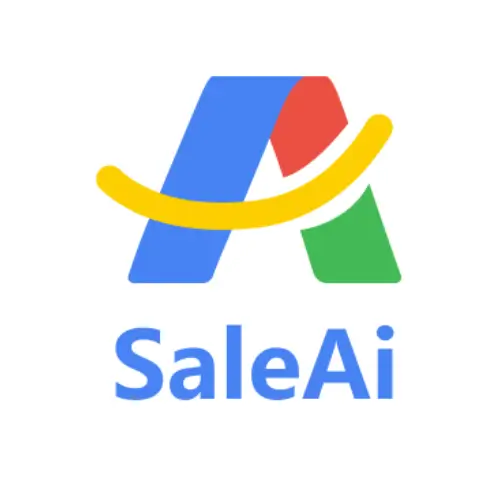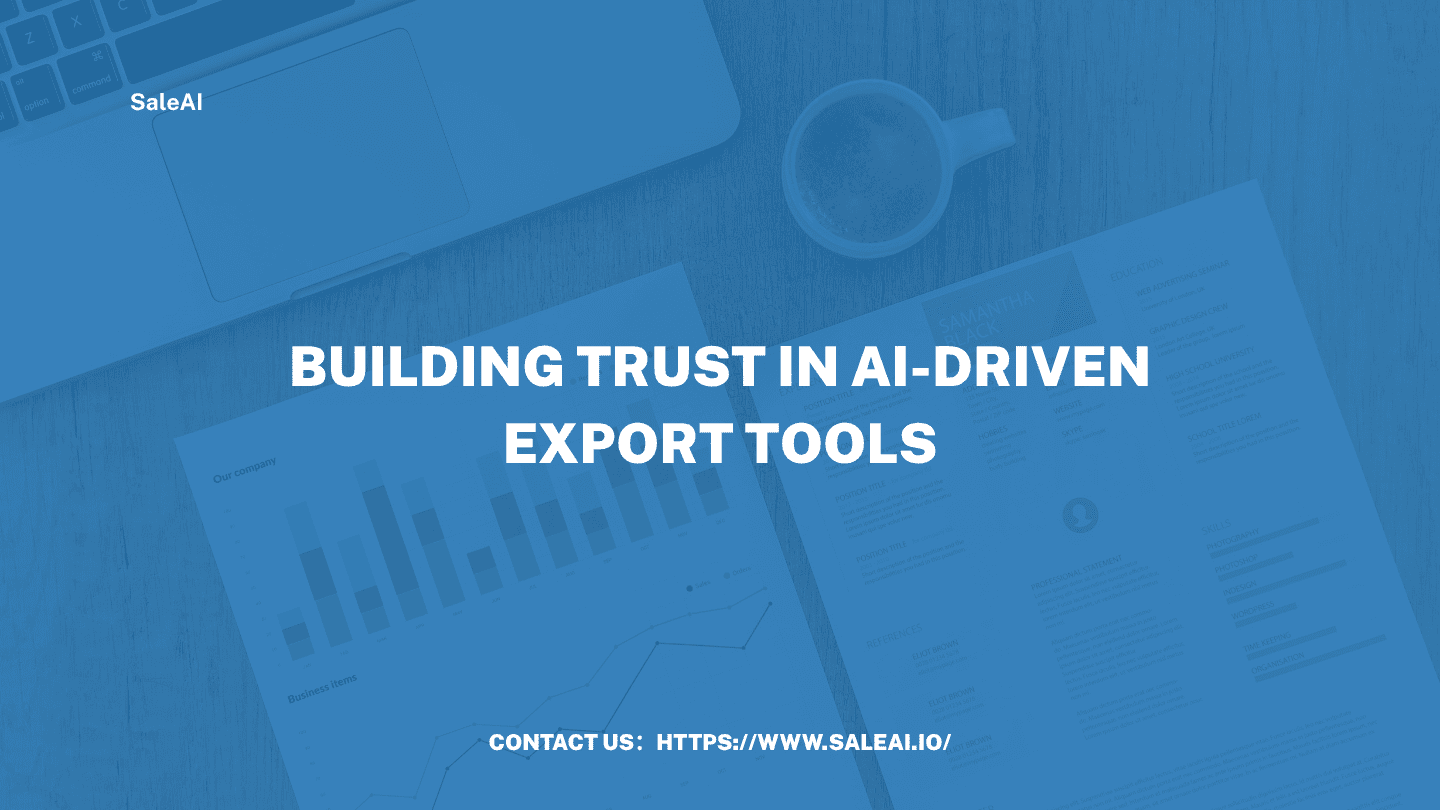Artificial intelligence has become the new engine of global trade.
From automating lead discovery to generating reports and emails, AI is now deeply integrated into the export workflow.
But as automation grows more powerful, one question becomes even more critical:
Can businesses trust the AI that drives their trade?
For global exporters, trust is not just an ethical issue — it’s a business requirement.
That’s why SaleAI is building a new model of responsible automation where transparency, compliance, and reliability come first.
1. Why Trust Defines the Future of Trade AI
Every export decision is a chain of responsibility.
When AI starts generating quotes, verifying buyers, and suggesting deals, the system must be credible, explainable, and compliant.
According to the World Economic Forum (WEF), 78% of global executives say “trust” is the primary factor influencing their adoption of AI technologies.
In trade, where sensitive business data crosses borders daily, trust isn’t optional — it’s operational.
AI that acts without transparency can damage reputations faster than it builds efficiency.
That’s why responsible platforms like SaleAI approach automation with a principle that’s simple but powerful:
Intelligence builds efficiency. Trust builds longevity.
2. The Three Challenges of Trust in Trade AI
Building trustworthy AI in exports is not just about software — it’s about governance.
Across the industry, three major challenges shape the conversation:
1) Data Privacy and Ownership
Export operations involve sensitive client lists, contracts, and pricing data.
Who owns that data once it enters an AI system?
SaleAI ensures all client data remains encrypted and region-compliant, aligning with GDPR and APAC data standards.
2) Algorithmic Bias
When AI models are trained on unbalanced data, they can misjudge buyer credibility or market potential.
SaleAI’s agents, including InsightScan Agent and LeadFinder Agent,
use cross-validated trade datasets to minimize bias and ensure every decision is based on verifiable signals.
3) Explainability and Transparency
Exporters need to understand why an AI recommended a certain buyer or report.
Tools like ReportCraft Agent and Super Agent
provide structured reasoning summaries — showing not only what the system did, but why it did it.
3. Principles of Trustworthy Trade AI
The foundation of SaleAI’s ecosystem is built on three enduring principles of Responsible AI:
- Transparency — Every AI action is traceable. Users can see how outputs are generated, ensuring accountability.
- Compliance — All data handling aligns with international trade and privacy regulations (GDPR, ISO/IEC 27001).
- Security — End-to-end encryption protects both company data and client communication across the platform.
As the OECD emphasizes in its AI Governance Framework, transparency and accountability are essential for maintaining both innovation and integrity.
SaleAI operationalizes that philosophy — turning abstract principles into everyday practice.
4. How SaleAI Builds Trust into Every Agent
Trust is not a feature — it’s an architecture.
At SaleAI, every Agent is designed with reliability at its core:
- Super Agent — Executes complex tasks only within approved data scopes, maintaining full traceability logs.
- InsightScan Agent — Verifies company credibility using public and trade-certified data, ensuring validation before engagement.
- LeadFinder Agent — Sources buyers from compliant databases and transparent signals.
- ReportCraft Agent — Builds export reports that cite data origins clearly for audit and decision-making.
- MailWriter Agent — Generates messages responsibly, keeping tone professional and factual, avoiding synthetic misrepresentation.
Together, these agents create a trust loop: every action is logged, auditable, and aligned with SaleAI’s global compliance standards.
5. Aligning with Global Responsible AI Frameworks
The movement toward responsible AI isn’t led by tech alone — it’s shaped by global policy.
Organizations like the OECD, UNCTAD, and the European Commission are setting governance standards for AI in trade, emphasizing:
- Data sovereignty
- Ethical automation
- Human oversight
- Explainable decision-making
SaleAI aligns its development roadmap with these principles, embedding compliance checkpoints into every stage of model design and deployment.
By bridging innovation with integrity, SaleAI ensures AI remains a trustworthy partner, not an uncontrollable black box.
6. Why Trust Becomes a Competitive Advantage
In the new trade economy, trust is not a constraint — it’s a differentiator.
As more businesses rely on AI to drive exports, partners and regulators will choose systems that can prove their reliability.
According to McKinsey, 63% of B2B leaders are more likely to adopt AI from vendors that provide transparent processes and human oversight options.
This is why trust-first AI will define the next wave of global competitiveness.
By prioritizing explainability, data integrity, and compliance, SaleAI gives exporters not only automation, but confidence —
confidence that every AI action reflects business ethics as much as business efficiency.
7. The Future of AI in Trade: Trust as Infrastructure
Tomorrow’s export systems won’t compete on speed alone — they’ll compete on credibility.
As AI becomes the operational backbone of trade, trust will become its invisible infrastructure.
The companies that win in global markets won’t just have smarter systems — they’ll have trusted systems.
And that’s exactly what SaleAI is building:
a foundation of intelligent automation grounded in transparency, integrity, and reliability.
Because in business, as in AI, what you build trust in — lasts.
👉 Start Free Trial: https://www.saleai.io/



